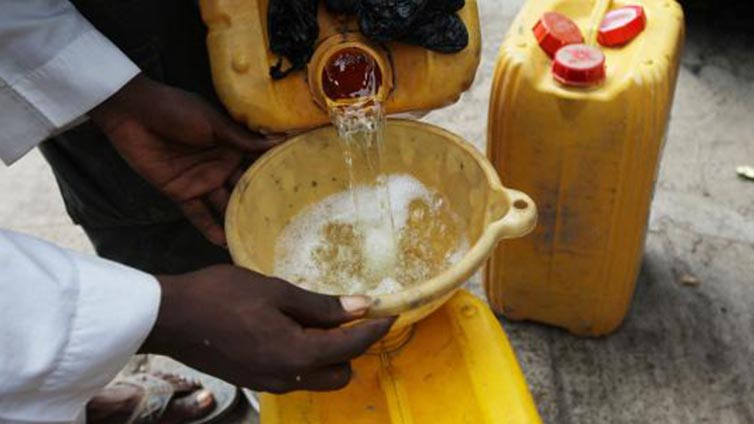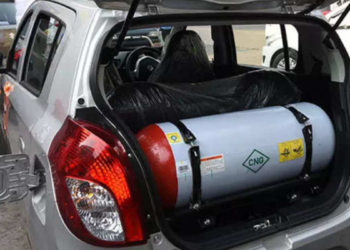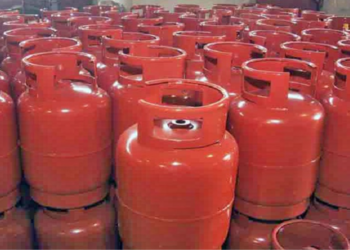The government is taking steps to develop compressed natural gas (CNG) infrastructure across the country, to create alternatives to petrol which has increased at the pump since fuel subsidies were removed. In the end, Nigerians are meant to benefit from cheaper CNG.
Aside from addressing gas supply issues in the country, some stakeholders have said the government should have varied gas-based alternatives across the country, so Nigerians can convert and make use of the gas type that is readily available to them.
Recently, Nairametrics reached out to Felix Ekundayo, the President of the Nigeria Liquefied Petroleum Gas Association (NLPGA) to gain some insight into the possible conversion of vehicles, vans, keke napeps, lorries, and generators, to LPG.
NAIRAMETRICS: What will it cost the average car owner in Nigeria to convert their private cars, and/or commercial vehicles to run on LPG?
Felix Ekundayo: The Nigeria LPG Association (NLPGA), in collaboration with the Nigerian Gas Association (NGA), the LPG Group of the Lagos Chamber of Commerce & Industry (LCCI), the Association of Local Distributors of Gas (ALDG), and HydroCIS, has jointly established a comprehensive framework for conversion costs.
The aim is to facilitate the smooth transition to LPG usage.
The framework encompasses various vehicle types and provides valuable insights into the financial aspects of this transition.
For conventional petrol vehicles, the conversion cost typically falls within the range of N300,000 to N400,000. Meanwhile, tricycles (keke napep) can be converted at a cost ranging from N100,000 to N200,000.
The conversion cost for larger vehicles like vans and lorries is estimated at N18 million, which reflects the cost difference between a gas-engine truck and a diesel-engine truck.
When considering the return on investment, the recovery time for converted petrol vehicles stands at approximately N40 per kilometre, equating to around 40% throughout 9 to 12 months.
For Keke nappes, the recovery time translates to N10 to N15 per kilometre, corresponding to an impressive 50% to 75% return over a similar 9 to 12-month period.
Vans and lorries, on the other hand, boast a faster recovery time, averaging N360 per kilometre, and yielding returns between 3 to 4 months.
Furthermore, for those seeking to convert petrol generators, the cost hovers around N90,000.
This investment is balanced out by a recovery rate of N500 per hour, with returns amounting to 50% throughout 150 to 200 operating hours.
In essence, this collaboration has yielded a comprehensive and insightful framework that sheds light on the conversion costs and potential returns associated with transitioning to LPG across various vehicle categories.
NAIRAMETRICS: Is it realistic to set up LPG infrastructure in the country for those who want to use LPG, since the FG is focused on CNG?
Felix Ekundayo: In fact, LPG infrastructure is already well-established across Nigeria, with remarkable growth observed from 60,000 MT in 2007 to an impressive 1,500,000 MT today.
The availability of LPG is widespread, and there are only a few locations where it remains scarce.
From our perspective, the optimal approach for the Government would be to avoid concentrating all resources in one avenue but rather, adopt a diversified strategy for Autogas implementation.
This aligns precisely with the original intentions and development of the standards.
NAIRAMETRICS: Where do current gas supply challenges factor into in all these plans to use gas as an alternative to petrol in Nigeria?
Felix Ekundayo: The prevailing gas supply challenges predominantly impact natural gas production, creating impediments not only for export ventures but also for domestic projects. Interestingly, Nigeria continues to export surplus LPG that could potentially find beneficial local applications.
Given this context, placing exclusive emphasis on a CNG-only solution appears challenging to reconcile.
NAIRAMETRICS: How do you propose that the new minister of gas should tackle gas supply challenges in Nigeria?
Felix Ekundayo: We are more than willing to engage in a constructive dialogue with the new Minister. By “we,” I am referring to the collective coalition of key gas stakeholders.
This coalition primarily comprises the Nigeria LPG Association (NLPGA), representing the LPG industry, and the Nigeria Gas Association (NGA), which advocates for the natural gas (NG) sector.
Our collaborative effort underscores the importance of a unified approach that transcends individual interests. This approach is aimed at maximizing benefits for Nigeria and achieving the desired outcomes within the gas sector.
NAIRAMETRICS: From the perspective of the NLPGA, what states are ripe for the use of LPG in vehicles?
Felix Ekundayo: NLPGA firmly believes that, from our perspective, every state in Nigeria along with the Federal Capital Territory is ready for the adoption of Autogas as of the present moment.
This stance is grounded in the fact that there is no requirement for any further infrastructure deployment.
The crux of our conviction is built upon the foundation of a robust infrastructure that stands steadfast and ready. The road to Autogas adoption is already paved, awaiting the tireless treads of progress to leave an indelible mark on the path toward a greener, more economical tomorrow.
NAIRAMETRICS: Given the country’s current economic realities, how do we go about setting up diverse infrastructure for the necessary migration to gas variants as alternatives to petrol? Also, how do we get funding?
Felix Ekundayo: Both NLPGA and NGA have diligently crafted comprehensive plans that now stand ready for implementation.
These well-thought-out strategies are poised to usher in a new era of progress.
In terms of financing, a judicious blend of funding sources has been meticulously outlined a blend that promises to be significantly more cost-effective than the fiscal outlay equivalent to just two months’ worth of subsidy.
In essence, our plans are not mere blueprints but rather a roadmap to a better, more prosperous Nigeria. They are emblematic of our shared determination to move beyond rhetoric and into action.
NAIRAMETRICS: How can the country split its interests between transforming into a gas-based economy using its vast gas resources and exporting gas to Europe for much-needed foreign exchange?
Felix Ekundayo: The notion that these two goals are mutually exclusive is a misconception that needs dispelling. Concentrating on one need not come at the expense of the other.
Countless nations have effectively struck a harmonious equilibrium between these pursuits, harnessing the power of gas as a propellant for their economies.
It’s our aspiration that Nigeria, too, will heed the wisdom of informed counsel and judicious decision-making.
NAIRAMETRICS: For those outside the sector, can you explain how Nigeria’s current forex flip-flopping impacts the country’s gas value chain?
Felix Ekundayo: The wavering in the value of the Naira has wrought havoc on multiple fronts:
- For project developers, funds acquired in Naira have dwindled in adequacy for their intended purposes.
- The imperative working capital requirements have escalated, thereby inflating the cost of gas.
- The purchasing power of consumers has been compromised, resulting in a tangible dent in demand.
These reverberations have collectively dealt a severe blow to the industry. Considering this challenging landscape, our fervent aspiration is for an amelioration of the current circumstances.
We hold hope for an upturn that alleviates the burden and helps pave the way for a more favourable outlook.






















CNG is much saver to use than LPG because CNG is less dense than air being made majorly of methane and hence is a lifting gas. It will rise into the atmosphere in case of leakage preventing explosion while LPG majorly contains propane and is denser than air making it possible to build up in case of leakage, leading to explosion.